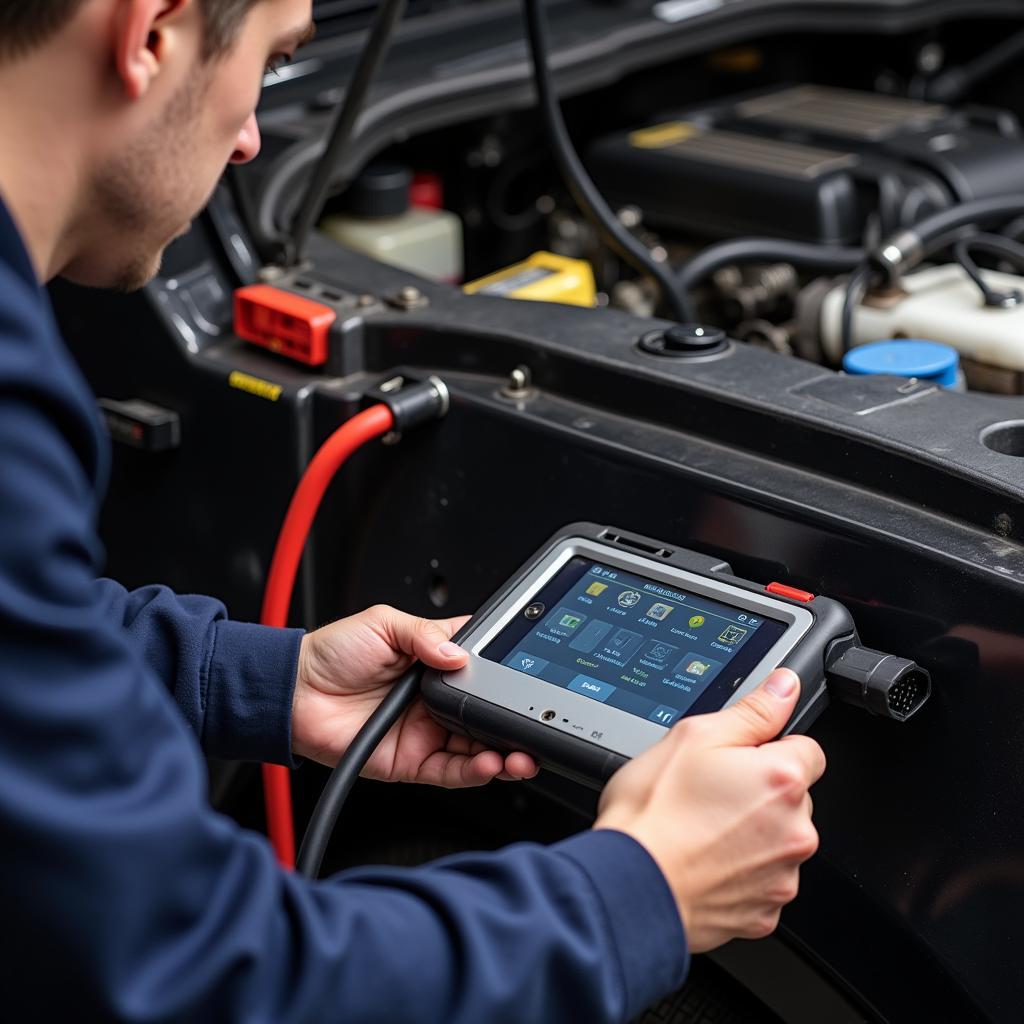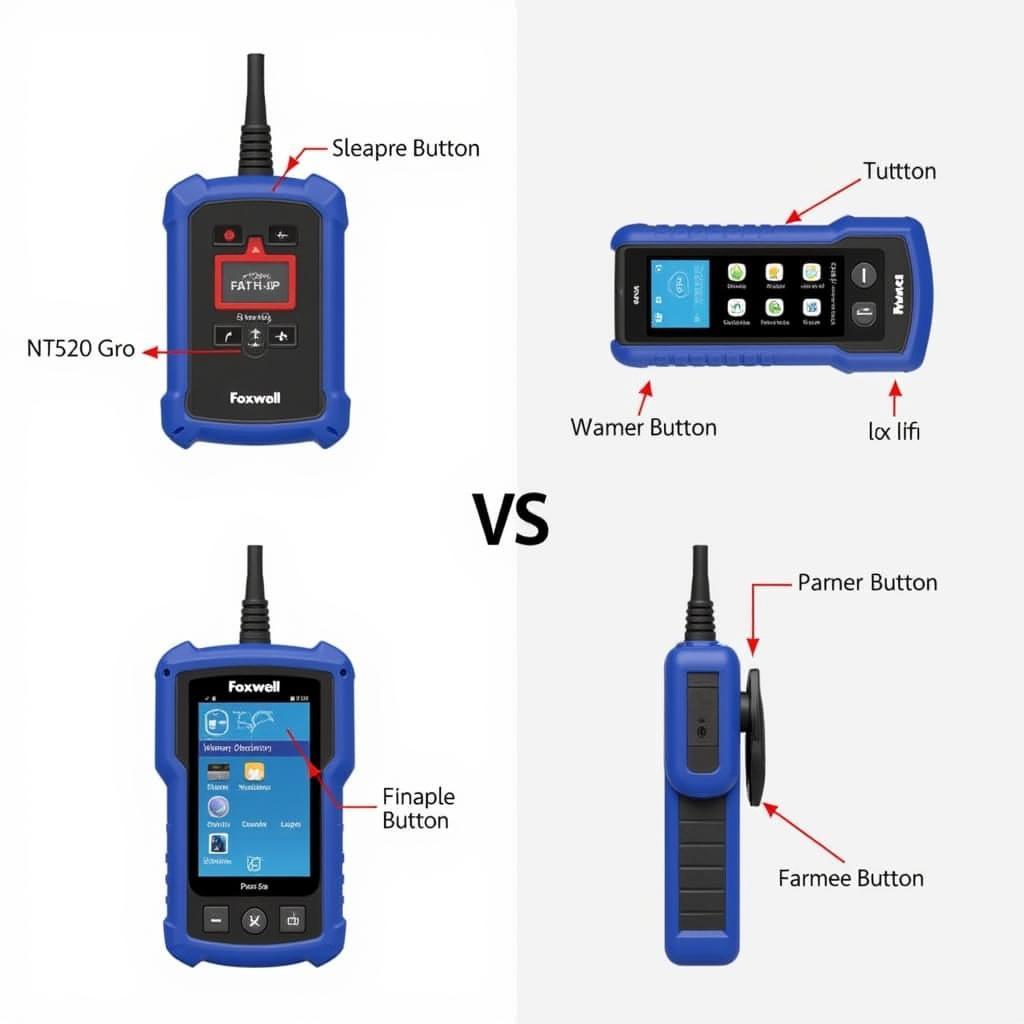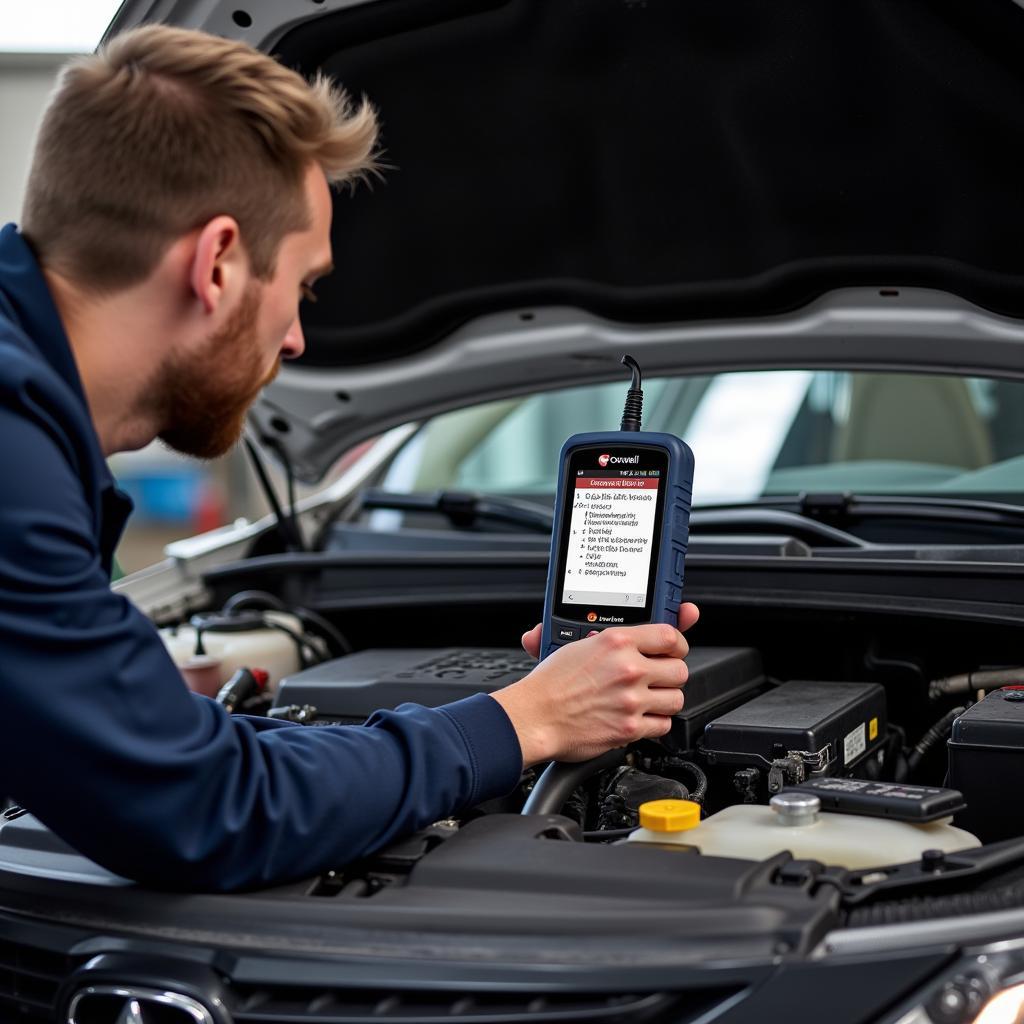When your car throws you an electrical curveball, the last thing you’d expect is for a plumber to come to the rescue. Yet, in the world of automotive diagnostics, the name “Paul Foxwell Plumbing” often pops up, leaving many car owners scratching their heads.
Decoding the Mystery: It’s Not About Pipes and Wrenches
Before you call your friendly neighborhood plumber, let’s clear the air. “Paul Foxwell Plumbing” isn’t about fixing leaky faucets or clogged drains. It’s a slang term used in the automotive industry, often with a humorous undertone, to describe the process of diagnosing and repairing complex electrical problems in vehicles.
The term likely originated from the intricate network of wires, sensors, and modules that resemble the plumbing system of a house. Just like a plumber traces water flow to identify leaks, automotive technicians use diagnostic tools and their expertise to pinpoint electrical faults within a vehicle’s intricate wiring harness.
Why “Paul Foxwell”? The Origins of an Industry Inside Joke
While the exact origin of the phrase remains a mystery, it’s believed to be a play on words, highlighting the challenging nature of automotive electrical diagnostics. The humor lies in the juxtaposition of a traditionally low-tech profession like plumbing with the high-tech world of automotive electronics.
 Car diagnostics tools connected to a vehicle's computer system
Car diagnostics tools connected to a vehicle's computer system
Navigating the Labyrinth: Common Automotive Electrical Gremlins
Modern vehicles are rolling computer networks, with numerous electronic control units (ECUs) managing everything from engine performance to safety features. When these systems malfunction, the symptoms can range from minor annoyances to major headaches.
Here are some common electrical issues that might have you calling for “Paul Foxwell Plumbing”:
- Check Engine Light: This ubiquitous warning light can indicate a wide range of problems, from a loose gas cap to a faulty oxygen sensor.
- Battery Problems: Dead batteries, slow cranks, and dim headlights can all point to issues with the battery, alternator, or starting system.
- Sensor Malfunctions: Modern cars rely on a plethora of sensors to monitor various systems. Faulty sensors can lead to poor fuel economy, reduced performance, and even safety concerns.
- Wiring Issues: Corroded connections, damaged wires, or rodent damage can disrupt the flow of electricity, causing all sorts of electrical havoc.
The Right Tools for the Job: Beyond the Screwdriver
Diagnosing and repairing automotive electrical problems requires more than just a basic understanding of electricity. Technicians need specialized tools and software to effectively “plumb” the depths of a vehicle’s electrical system.
These tools include:
- Digital Multimeters: Used to measure voltage, current, and resistance, essential for testing electrical components and circuits.
- Circuit Testers: Help identify shorts, open circuits, and other wiring problems within a vehicle’s electrical system.
- Scan Tools: These sophisticated devices connect to a vehicle’s onboard computer system (OBD-II port) to read and clear diagnostic trouble codes (DTCs), providing valuable insights into the root cause of electrical issues.
DIY or Call in the Pros?
While some basic electrical troubleshooting can be done by car owners with a little know-how, complex electrical problems are best left to qualified automotive technicians. They have the experience, knowledge, and specialized equipment to diagnose and repair electrical gremlins efficiently and safely.
Need Help with Your Automotive “Plumbing”?
If you’re experiencing electrical issues with your vehicle, don’t hesitate to contact the experts at ScanToolUS. Our team of experienced technicians can help you diagnose and resolve even the most challenging automotive electrical problems.
Contact us today at +1 (641) 206-8880 or visit our office at 1615 S Laramie Ave, Cicero, IL 60804, USA. We’re here to help you get back on the road with confidence!
FAQ
1. What should I do if my check engine light comes on?
A check engine light can indicate a range of issues. It’s best to get your vehicle diagnosed by a qualified technician to determine the underlying cause.
2. How often should I replace my car battery?
Car batteries typically last 3-5 years, but their lifespan can vary depending on climate and usage.
3. Can I jumpstart my car myself?
Yes, but it’s crucial to follow the correct procedure and safety precautions to avoid damaging your vehicle’s electrical system.
4. What causes a car horn to stop working?
A faulty horn relay, fuse, or wiring issue are common causes for a non-functional car horn.
5. How can I prevent rodent damage to my car’s wiring?
Parking in a garage, using rodent repellent sprays, and keeping your car clean can help deter rodents from nesting in your engine bay.


